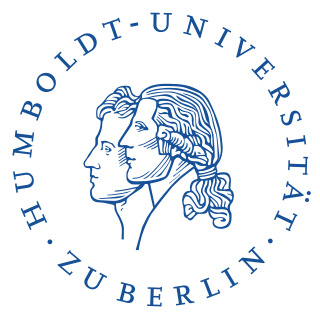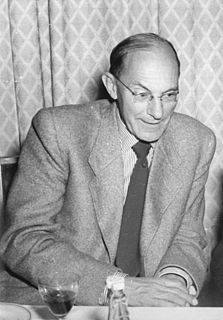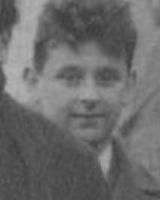
Carl von Ossietzky was a German journalist and pacifist. He was the recipient of the 1935 Nobel Peace Prize for his work in exposing the clandestine German re-armament.

Ernst Jünger was a highly-decorated German soldier, author, and entomologist who became publicly known for his World War I memoir Storm of Steel.

Humboldt University of Berlin is a university in the central borough of Mitte in Berlin, Germany. It was established by Frederick William III on the initiative of Wilhelm von Humboldt, Johann Gottlieb Fichte and Friedrich Ernst Daniel Schleiermacher as the University of Berlin in 1809, and opened in 1810, making it the oldest of Berlin's four universities. From 1810 until its closure in 1945, it was named Friedrich Wilhelm University. During the Cold War the university found itself in East Berlin and was de facto split in two when the Free University of Berlin opened in West Berlin. The university received its current name in honour of Alexander and Wilhelm von Humboldt in 1949.

Carl Zuckmayer was a German writer and playwright. His older brother was the pedagogue, composer, conductor and pianist Eduard Zuckmayer.

Arno Breker was a German architect and sculptor who is best known for his public works in Nazi Germany, where they were endorsed by the authorities as the antithesis of degenerate art. One of his better known statues is Die Partei, representing the spirit of the Nazi Party that flanked one side of the carriage entrance to Albert Speer's new Reich Chancellery.
The Goethe Prize of the City of Frankfurt is an award for achievement "worthy of honour in memory of Johann Wolfgang von Goethe" made by the city of Frankfurt am Main, Germany. It was usually an annual award until 1955, and thereafter has been triennial. Many recipients are authors, but persons working in several other creative and scientific fields have been honoured. The prize money is €50,000.
The Kleist Prize is an annual German literature prize. The prize was first awarded in 1912, on the occasion of the hundredth anniversary of the death of Heinrich von Kleist. The Kleist Prize was the most important literary award of the Weimar Republic, but was discontinued in 1933.
Carl Einstein, born Karl Einstein, was an influential German Jewish writer, art historian, anarchist and critic.
Carl Wilhelm, was a prolific German-Jewish film director, film producer and screenwriter of the silent film era, at the end of which his career apparently entirely faded away and he vanished into obscurity.

Ernst Adolf Alfred Oskar Adalbert von Dobschütz was a German theologian, textual critic, author of numerous books and professor at the University of Halle, the University of Breslau, and the University of Strasbourg. He also lectured in the United States and Sweden.
The German parliament or Reichstag that was elected in the general election of May 1928 and sat until that of September 1930 was the fourth parliament of the Weimar Republic.

Ludwig Renn was a German author. Born a Saxon nobleman, he later became a committed communist and lived in East Berlin.
Louis de Wohl was a German-born Catholic author, and had served as an astrologer notable for his work with MI5 during World War II. Sixteen of his popular pre-war novels were the basis of movies. His later novels are literary hagiographies of notable Roman Catholic saints and of different periods of the Bible.
Ernst Carl Reinhold Brüche was a German physicist. From 1944 to 1972, he was the editor of the Physikalische Blätter, a publication of the Deutsche Physikalische Gesellschaft.

Kurt Vespermann was a German stage and film actor.

Ernst-Wolfgang Böckenförde was a German legal scholar and a judge on Germany's Federal Constitutional Court. He was a professor at the University of Freiburg and the author of more than 20 books and 80 articles dealing with legal and constitutional theory, as well as political theory, political philosophy and Catholic political thought. Böckenförde was considered a member of the Ritter School.
The Mendelssohn Scholarship refers to two scholarships awarded in Germany and in the United Kingdom. Both commemorate the composer Felix Mendelssohn, and are awarded to promising young musicians to enable them to continue their development.

Peter Wust was a German existentialist philosopher.

Robert Faesi was a Swiss writer and academic concerned with Literature and language

Maximilian Jacob Herzberger was a German-American mathematician and physicist, known for his development of the superachromat lens.












